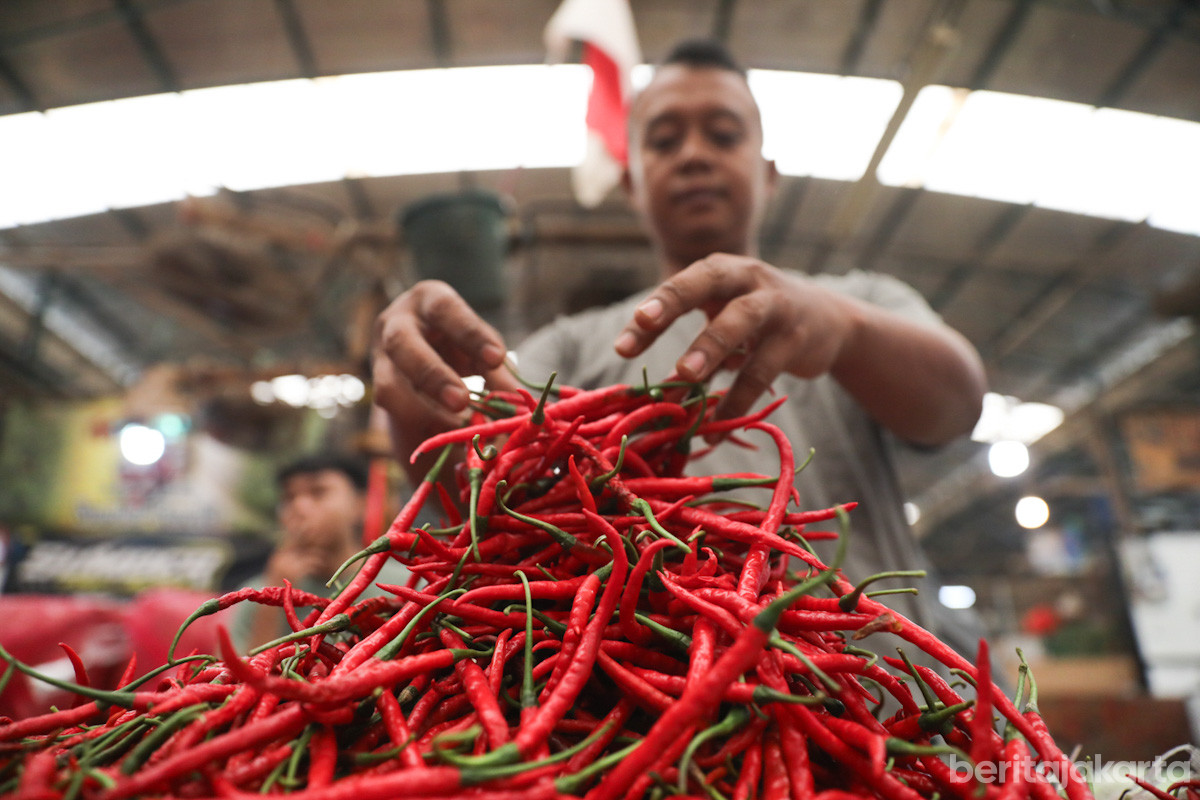

Monday, September 1st 2025 Reporter: Fakhrizal Fakhri Translator: Rizky Mawardi 1352

(Foto: Ilustrasi)
The Central Statistics Agency (BPS) of Jakarta recorded that the Jakarta economy experienced deflation of 0.05 percent (month-to-month) in August 2025. BPS also recorded that the Consumer Price Index (CPI) fell from 107.40 in July to 107.35 in August 2025.
differs from the conditions in August 2024
"This deflation differs from the conditions in August 2024, which actually experienced inflation of 0.04 percent," said Head of Jakarta BPS, Nurul Hasanudin, Monday (9/1).
Nurul explained that on an annual basis, inflation in Jakarta was recorded at 2.16 percent, while on a calendar year basis it was 1.57 percent. Meanwhile, the main contributor to deflation came from the food, beverage, and tobacco group, with deflation of 0.69 percent and a contribution of 0.14 percent. This was followed by the clothing and footwear group, which experienced deflation of 0.20 percent (a contribution of 0.01 percent), and the information, communication, and financial services group, which experienced deflation of 0.06 percent, although its contribution was relatively small.
"Some of the commodities that predominantly depressed prices were tomatoes, cayenne peppers, red chilies, garlic, and broiler chicken. Meanwhile, in the transportation sector, gasoline experienced deflation, but this was offset by inflation in toll road, sea, and rail fares due to the end of the tariff discount program," he added.
Meanwhile, Jakarta's foreign trade performance showed a positive trend from January to July 2025. Exports reached USD 9.79 billion, a 38.88 percent increase compared to the same period last year.
Growth was primarily driven by non-oil and gas exports, which reached USD 9.77 billion or 39.13 percent higher. A significant increase was recorded in footwear, which surged 277.59 percent or USD 1.36 billion. Conversely, exports of fish, crustaceans, and mollusks fell 3.28 percent.
The manufacturing industry was the main driver of exports, contributing a US$ 2.75 billion (41.09 percent) increase. Meanwhile, the agriculture and mining sectors experienced contraction.
In terms of imports, Jakarta recorded a value of USD 45.53 billion, or 8.97 percent higher. Non-oil and gas imports grew 9.59 percent, driven by increases in capital goods (24.01 percent), raw/auxiliary materials (3.58 percent), and consumer goods (8.31 percent).
"The largest growth of import commodity was vehicles and their parts (up 39.24 percent), while mineral fuel imports fell 6.80 percent. China remains Jakarta's main trading partner, contributing 42.29 percent of its total imports," he continued.
The Jakarta BPS also reported an increase in the room occupancy rate (TPK) of both star-rated and non-star-rated hotels in July 2025. The TPK of star-rated hotels reached 55.91 percent, or 1.68 points higher compared to July 2024 (year on year) and 3.56 points higher compared to June 2025 (month to month).
Meanwhile, the TPK for non-starred hotels was 41.74 percent, down 2.78 points compared to July 2024, but still 0.87 points higher compared to June 2025.
In terms of passenger numbers, land and sea transportation in Jakarta has increased. In July 2025, MRT passengers reached 4.35 million (a 15.07 percent year-on-year increase), Transjakarta passengers reached 37.61 million (a 5.94 percent year-on-year increase), while LRT passengers decreased to 118,000 (a 10.90 percent year-on-year decrease).
In the maritime sector, 31,511 passengers departed through Tanjung Priok Port, or 15.81 percent higher. Loading and unloading activity also grew by 11.51 percent (5.33 million tons) and 6.27 percent (3.90 million tons) respectively.
"Air transportation showed a different situation. Passenger departures through Halim Perdanakusuma Airport fell 17.53 percent to 137,473. However, cargo loading and unloading activity remained high, increasing by 53.73 percent (1.03 thousand tons) and 20.56 percent (4.34 thousand tons)," he stated.